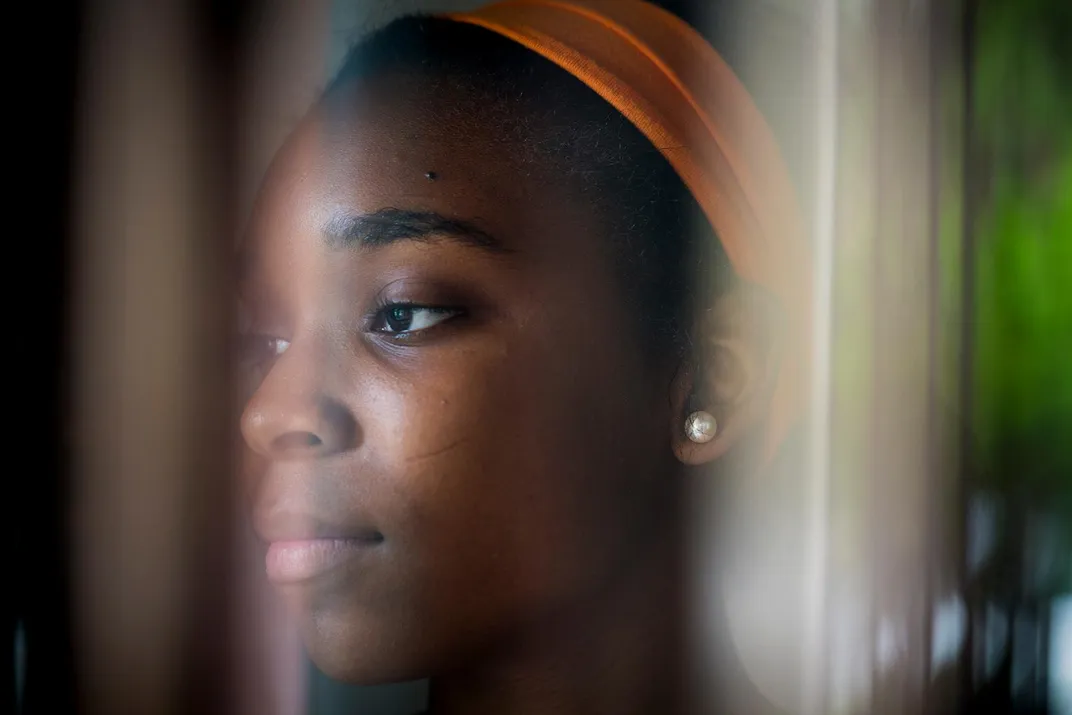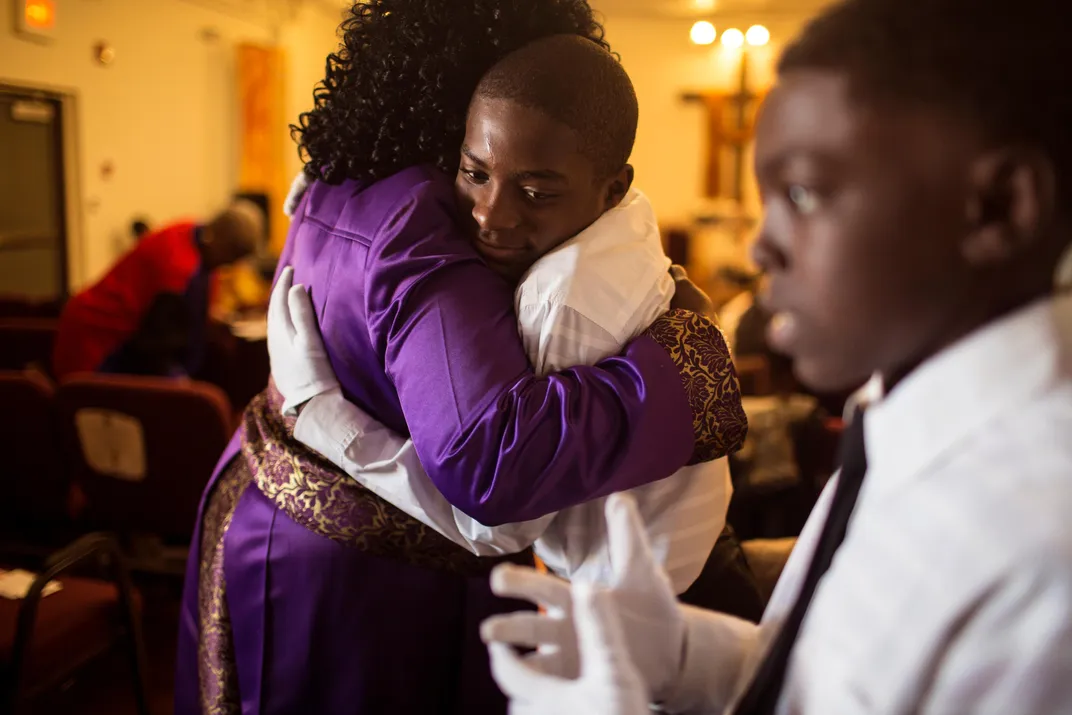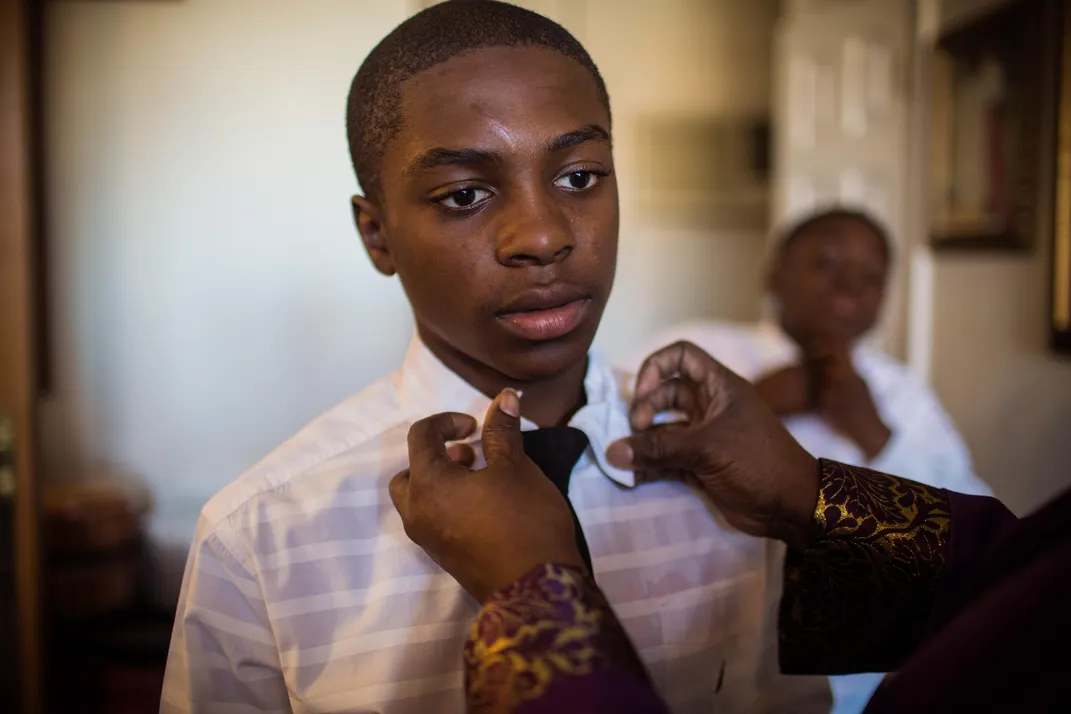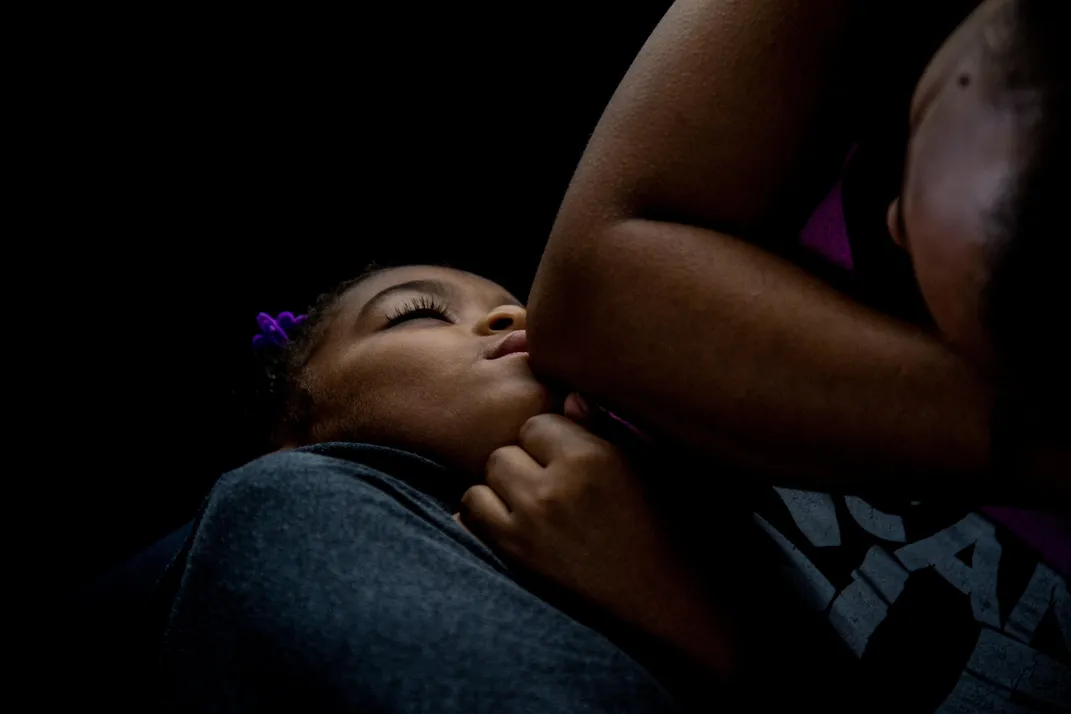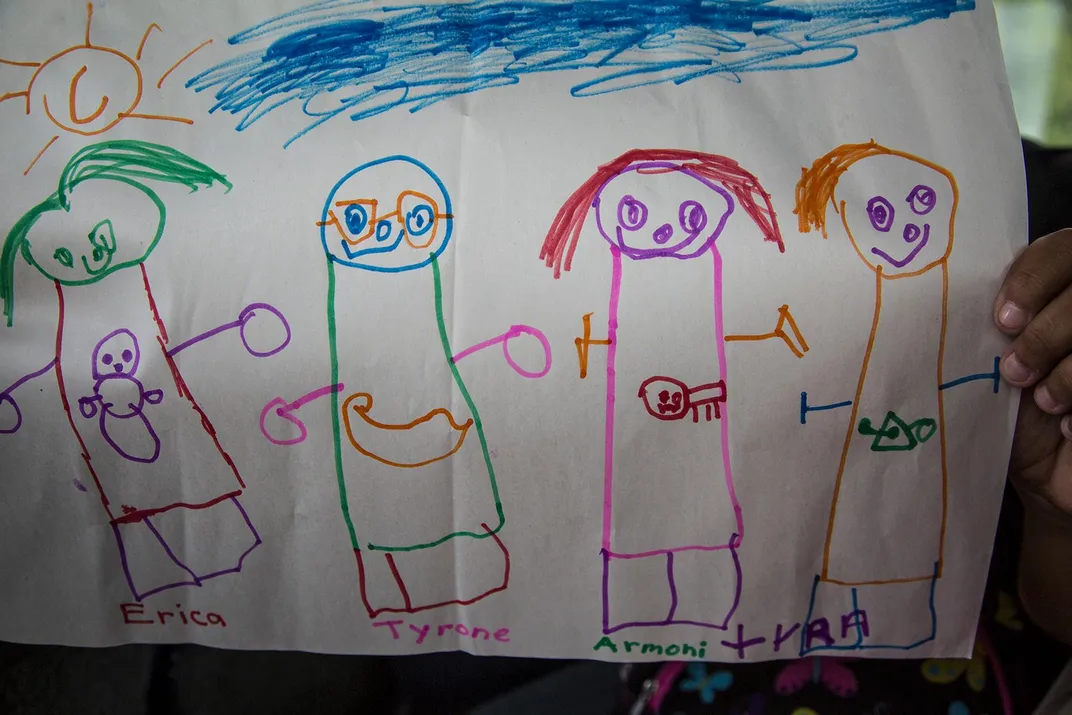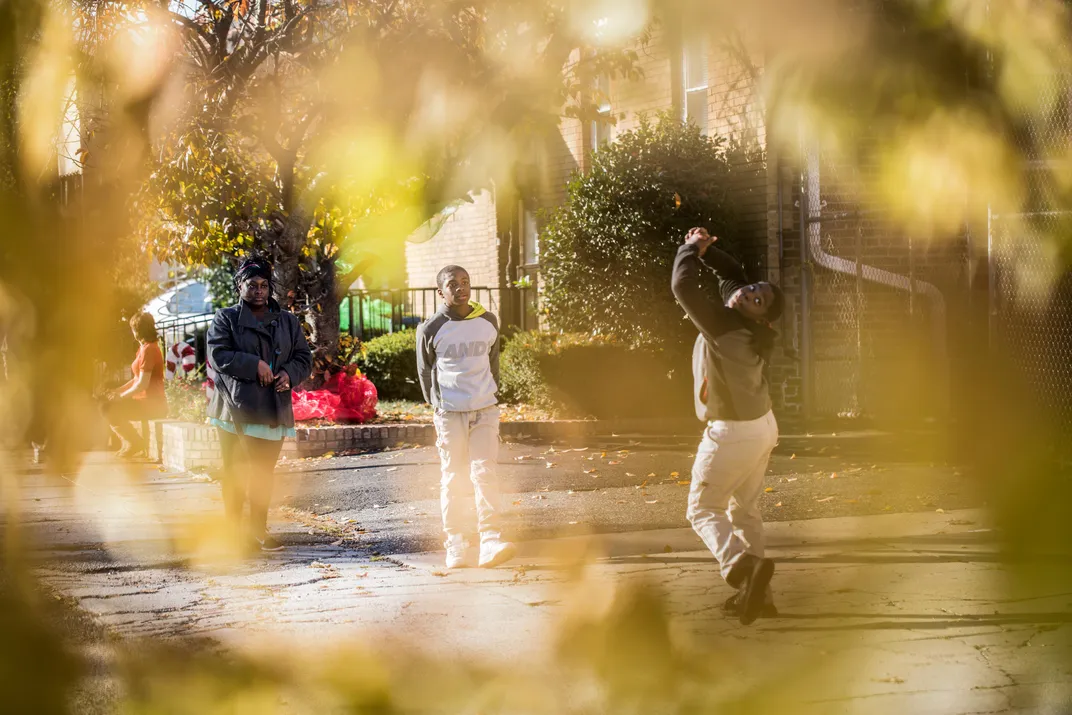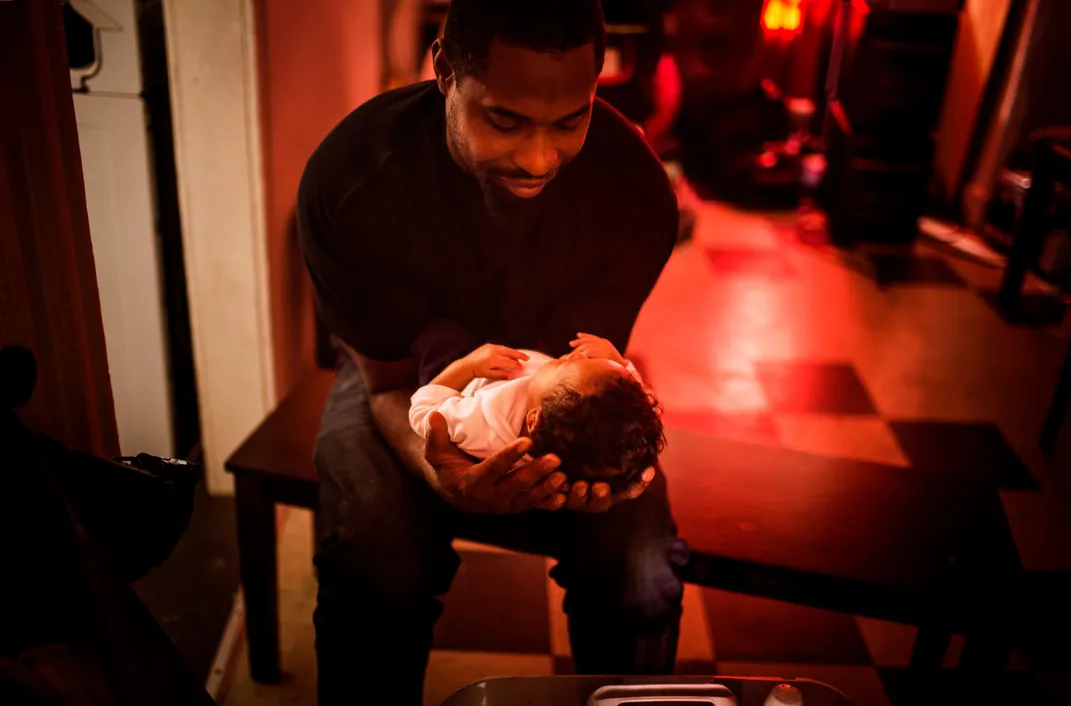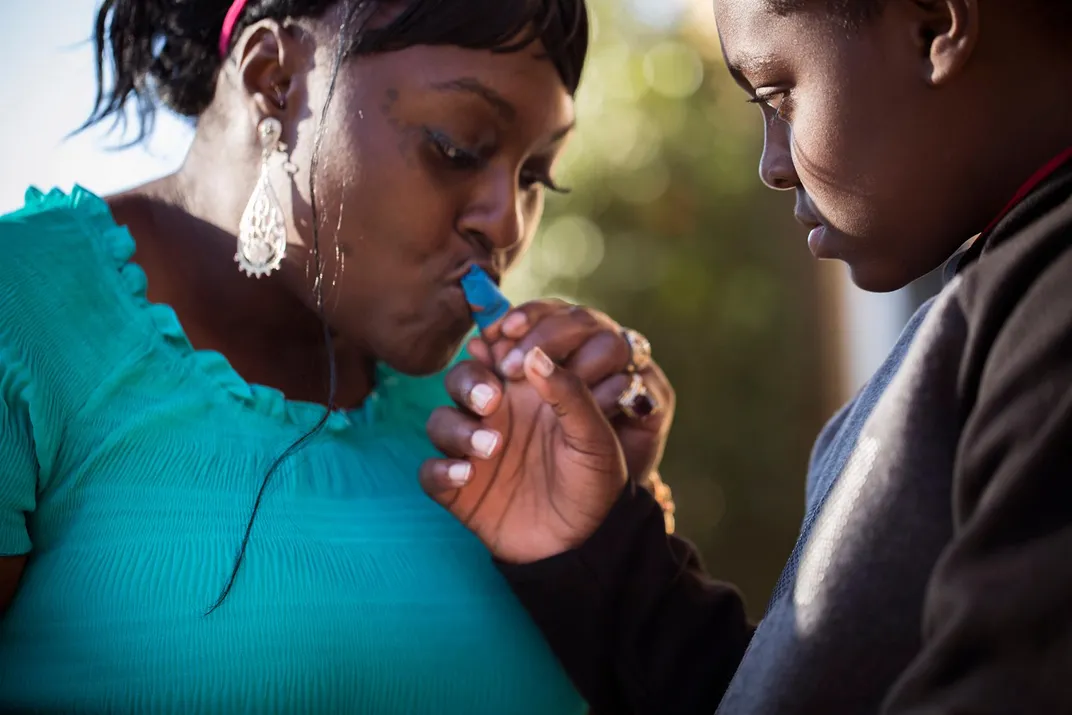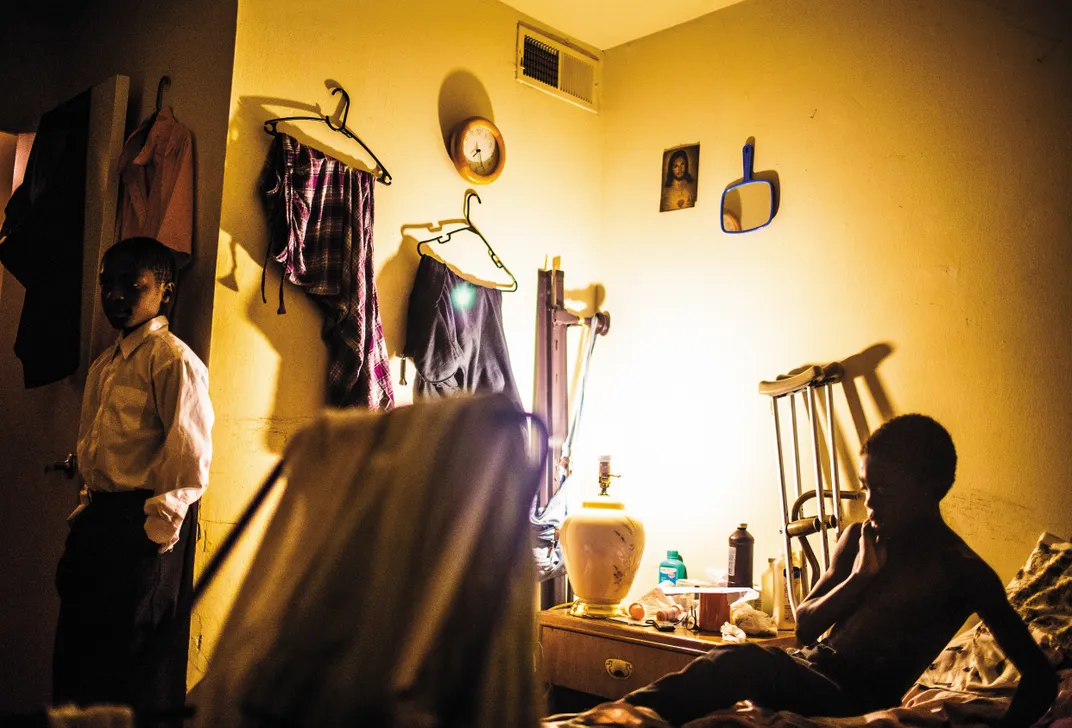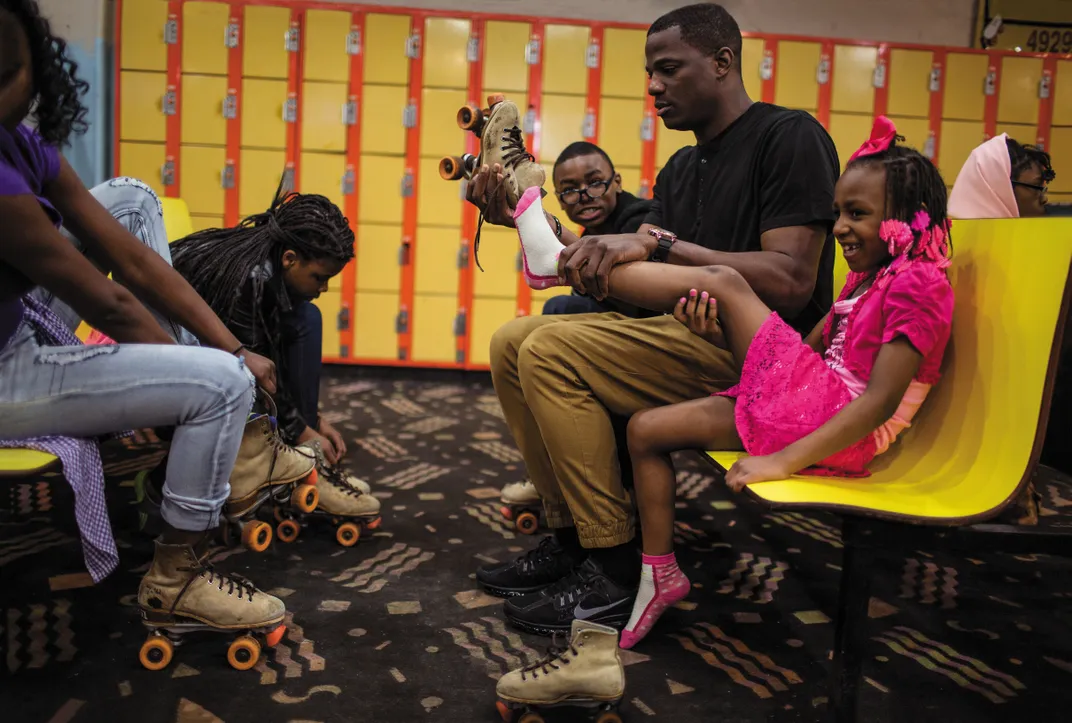The Everyday Struggle of a Child Whose Parents Are Incarcerated
With more American men and women in prison than ever before in our history, millions of children are struggling with the effects of a fractured family life
Tucked away in the forested hills of northern West Virginia is the Hazelton Federal Correctional Complex, one of hundreds of prisons that dot the rural American landscape. In 2006, Sherrie Harris began serving time there after being convicted of assault. Her three sons were all under 5, and their relatives didn’t want them to know their mother was in prison. They finally learned the truth in 2013 and, for the first time, they made the four-hour bus trip from the Washington, D.C. area. The middle son, Demetri, then 8 years old, fell apart when it was time to leave. “All she could say was ‘Bye, Demetri,’” Sandra Koger, his grandmother, told me as we sat in the darkened living room of her spartan apartment. “He just kept crying.”
For the estimated 2.7 million American children who have a parent behind bars, incarceration is not just a sentence served by a single individual. It’s a reality that reverberates through an entire family. The guardian who remains behind often faces extreme financial and emotional struggles. Sherrie Harris’ then-partner, William Koger, was behind bars himself when Dashawn was born ten years ago. He has since had trouble staying employed, and the family’s hardships were compounded when an injury from a car accident left him with a steel rod in his back and an artificial hip. More than half of children with incarcerated parents have lived with someone who has a substance abuse problem, and more than a quarter with someone who is suicidal or mentally ill. Recent research shows that children with an incarcerated parent are at greater risk of dropping out of school, taking up delinquent behavior and ultimately being locked up themselves.
All of these problems have been around for as long as prisons have existed. But the scale is vastly greater today. In 1980, near the beginning of the war on drugs, half a million Americans were in jails and prisons. The number has more than quadrupled, to 2.3 million today. Mandatory minimum sentences also extended the length of time prisoners serve. In 1980, the average federal drug offender was sentenced to 54.6 months. In 2011 (the most recent year with comparable data), the average sentence was 74.2 months. In the same time period, probation sentences for drug offenders fell from 26 percent to 6 percent.
Those tendencies and others within the criminal justice system have contributed to what has been called an epidemic of incarceration in the black community. Today, one in nine African-American children have a parent in prison. The influence can be far-reaching. One 2012 study found that in classrooms where a large proportion of the children had incarcerated mothers, even pupils who didn’t have a parent behind bars were more likely to have lower grades and lower college graduation rates. President Barack Obama spoke of such trends at a Congressional Black Caucus banquet in 2015: “Mass incarceration rips apart families. It hollows out neighborhoods. It perpetuates poverty.”
The remote locations of many prisons makes it harder for families to stay connected. “It’s another bill to visit a prison,” says Omyra Dickson, a Philadelphia-area resident whose partner, Von Walden, spent years at the State Correctional Institute–Graterford, before being released in 2015. “Because, you know, they’re not close.” Dickson says men would be less likely to commit repeat offenses if they could form strong bonds with their children. “If you keep them close to their family, it keeps them more sane. It actually keeps them out of trouble.”
When Walden was at Graterford, he participated in Fathers and Children Together, a program at Graterford aimed at reconnecting families. As part of the process, Walden wrote a letter to his daughter, Mariah, in which he explained how he’d been abandoned by his father—a painful experience that he said had led him into a life of fighting, stealing, selling drugs and carrying guns. “Growing up I was a lot like you,” he wrote. “I did not have my father in my life. But you will, baby. You will.”
Related Reads
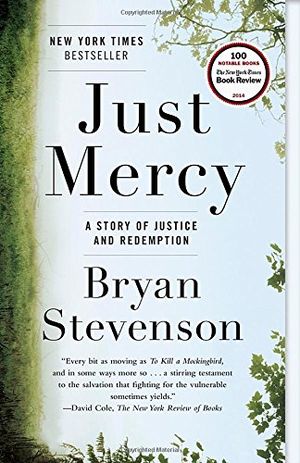
Just Mercy: A Story of Justice and Redemption
